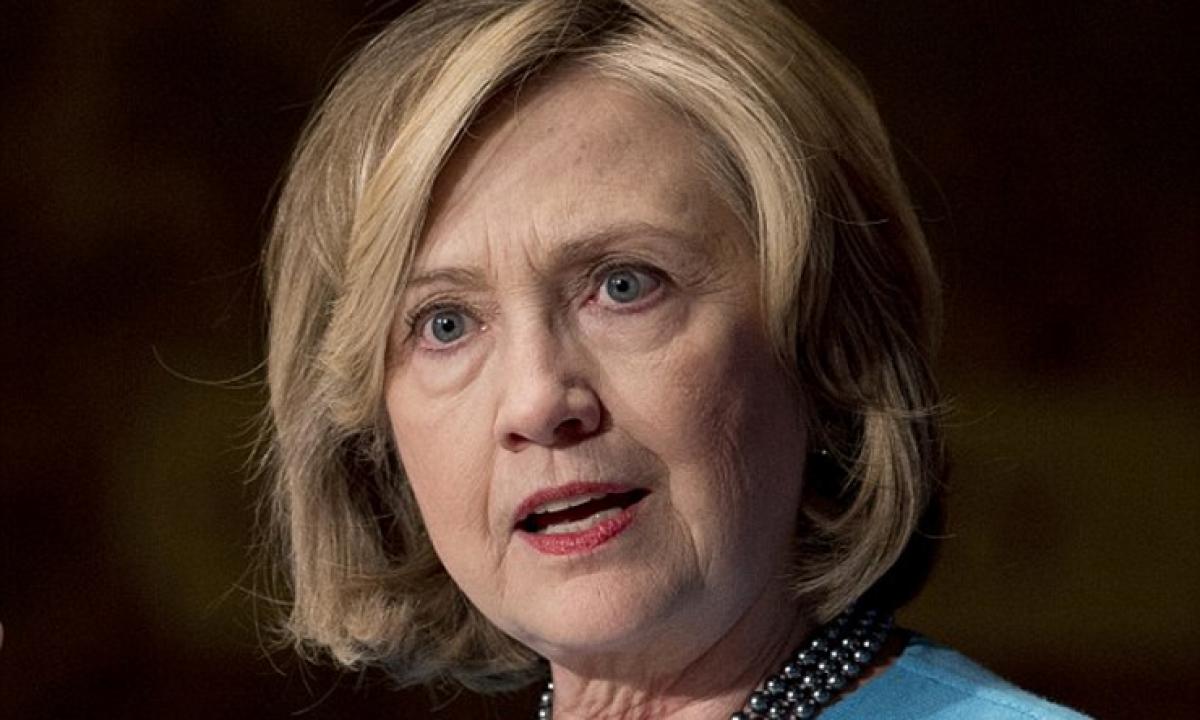Live
- Another tigress released in soft enclosure in Similipal
- Coastal defence exercise on Nov 20-21
- Budget allocated for Perur reservoir rekindles farmers’ hope
- Majhi to embark on 4-day Singapore trip
- 22 Balaji MBA College students secure jobs
- Panel to resolve inter-State disputes
- Matric exam from Feb 21 to March 6
- Keep your skin glowing this season
- Joshi flags off 10 battery-operated vehicles in Puri
- Adah Sharma shares her father’s ‘worst’ humour on morbid situations
Just In

x
Highlights
Hillary Clinton may not be in legal trouble over the use of a private email server for official correspondence, but release of some 7,000 new emails with information redacted from 150 of them added to her political headaches.
Hillary Clinton may not be in legal trouble over the use of a private email server for official correspondence, but release of some 7,000 new emails with information redacted from 150 of them added to her political headaches.

Information was redacted from the emails because it has now been deemed to require classification, the State Department said Monday night as it released the material to meet a federal court direction to release 25 percent of Clinton's emails by end August.
A State Department official said that the approximately 150 emails from Clinton's four year tenure as Secretary of State that are being upgraded and subsequently classified are all at the "confidential" level - the lowest level of classification.
Newly classified emails include correspondence Clinton had with an aide about an Iran speech she delivered at American University in 2010, and another from the minister counselor for public affairs in Pakistan with the subject "Facebook Freed in Pakistan," according to NBC News.
None are "Top Secret" as were two of the emails released last month, it said. In a 2010 note, Clinton asks colleague Philippe Reines if he can help her learn to use her new iPad, or "hPad," as Reines dubbed it.
The Washington Post reported in March that Clinton used an iPad for emails, as well as a mobile phone. The report undercuts Clinton's defence that she used a private email server so that she could carry just one device.
The Democratic front-runner in the 2016 presidential race has faced five months of criticism for using her own private server for official work.
State Department spokesman Mark Toner told reporters Monday that retroactive classification "certainly does not speak to whether (the information) was classified at the time it was sent or handled or however forwarded or received."
"And we've always been very clear that nothing that we've seen so far was ever marked classified," he said.
Toner would not say whether information from foreign government communications should have been classified at the time they were sent. Classification is "not often a black-and-white process," he said.
"Our clear focus is on clearing these emails, redacting them as necessary in order to safeguard anything that we've deemed now should be upgraded in classification."
The inspectors general for the State Department and the intelligence agencies have said they have found classified information in several work e-mails Clinton produced and expected to find more containing such material.
As part of its investigation, the FBI, according to the Post, has reached out to a Denver technology firm that Clinton hired to manage her server and to her attorney, who had kept a copy of her work e-mails on a thumb drive.
By Arun Kumar
(Arun Kumar can be contacted at [email protected])

Next Story
More Stories
ADVERTISEMENT
© 2024 Hyderabad Media House Limited/The Hans India. All rights reserved. Powered by hocalwire.com







